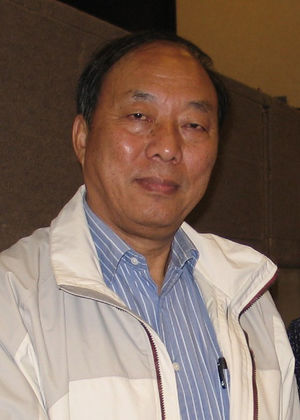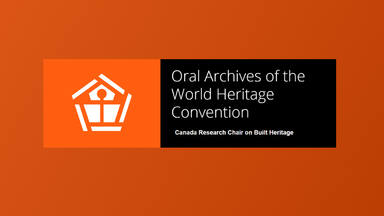
Interview
Guo Zhan
World Heritage Convention
After studying archeology at Peking University, Guo Zhan specialized in the history of Mongolia and the Yuan Dynasty at the Chinese Academy of Social Sciences. In 1976, he joined the State Administration of Cultural Heritage (SACH), where he worked for more than thirty years.
He occupied various functions related to the protection, management and research of ancient architecture, historic cities and archaeological sites, culminating in his appointment as commissioner of the Department of Cultural Heritage Protection. Now retired from the public service, he is Chairman of the Commission of Experts on the World Cultural Heritage of China, a non-governmental consultative institution approved by the State Administration of Cultural Heritage. He also heads the ICOMOS International Conservation Center in Xi'an. Professor and author, he recently published the articles “Beijing City and World Heritage,” Historic Environment, vol. 27, no. 1 (2015) et «Hani Rice Terraces of Honghe - The Harmonious Landscape of Nature and Humans», Landscape Research, vol. 40, no. 6 (2015).
Guo Zhan became the resource person for World Heritage after the ratification of the World Heritage Convention by China in 1985. As such, he introduced the principles of the Venice Charter and the Convention into Chinese heritage management practices, in addition to coordinating the preparation of the Chinese nomination files for the World Heritage List. He also participated in numerous expert meetings, including the Nara Conference on Authenticity in 1994. Guo Zhan contributed to the integration of his country into expert networks at ICCROM and ICOMOS, especially though his involvement in founding ICOMOS China. Also active within ICOMOS International, he was one of its vice-presidents from 2005 to 2014.
Interview with
Guo Zhan
3 August 2010, Brasilia, Brazil
The following audio excerpts are from an interview with Guo Zhan by Christina Cameron the 3 August 2010 in Brasilia, Brazil. He describes the challenges and particularities of the implementation of the World Heritage Convention in China, expresses his vision of the concept of authenticity and the Nara document, and commends the work of the advisory bodies.
- 1. The World Heritage Convention
- 1a. Involvement and role of Guo Zhan in the Convention
- 1b. Main objectives of the Convention
- 1c. The World Heritage List
- 1d. Implementation of the Convention in China
- 1e. Successes and failures of the Convention
- 2. The World Heritage Committee
- 3. The advisory bodies
- 4. The UNESCO Secretariat
- 5. The concept of authenticity and the Document of Nara
Oral Archives of the
World Heritage Convention
Under the leadership of the Canada Research Chair on Built Heritage at the University of Montreal, an international team of researchers conducts interviews with pioneers of World Heritage to capture memories of important moments in the history of UNESCO Convention.
Launched in 2006, this initiative is part of the UNESCO History project that celebrated the 60th anniversary of the creation of UNESCO. The Oral Archives project records the precious witness of people closely associated with the creation and implementation of the Convention. Their recollections and views have greatly enriched the book by Christina Cameron and Mechtild Rössler, Many Voices, One Vision: The Early Years of the World Heritage Convention (Ashgate/Routledge, 2013).
